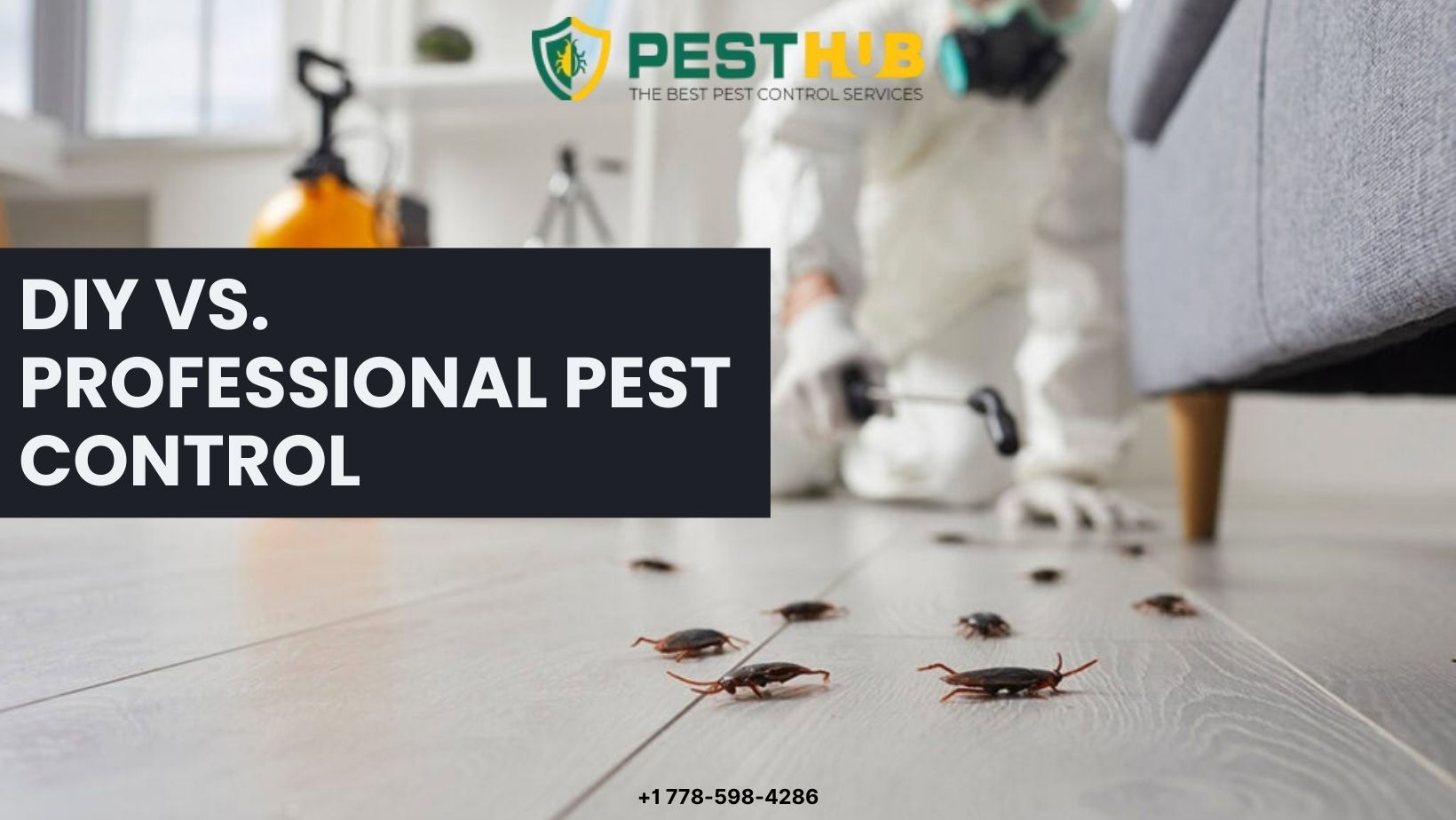Pests are never welcome guests in any home. Whether it’s ants in the kitchen, mice in the attic, or wasps in the backyard, getting rid of them is a top priority. But the big question is: Should you try to handle the problem yourself or call in the experts?
In this article, we’ll look at the pros and cons of DIY vs. professional pest control, so you can decide what works best for you and your home.
🧪 What is DIY Pest Control?
DIY stands for “do it yourself.” It means using sprays, traps, powders, or natural remedies to control pests on your own. These products are often found in hardware stores or online.
🔍 Common DIY methods include:
- Ant bait stations
- Cockroach sprays
- Mouse traps
- Natural repellents (like vinegar or essential oils)
- Boric acid powder
✅ Pros of DIY Pest Control:
- Cheaper upfront cost
You can buy basic pest control products for less than a service call. - Immediate action
You don’t have to wait for an appointment—you can take action right away. - Good for small problems
For minor issues like a few ants or fruit flies, DIY can work well.
❌ Cons of DIY Pest Control:
- May not solve the full problem
You might only kill the pests you see, not the ones hiding in walls or under floors. - Risk of misuse
Using too much product or the wrong kind can be harmful to pets, kids, or even you. - Short-term results
Pests often return because DIY methods don’t target the root cause.
🧰 What is Professional Pest Control?
Professional pest control is when you hire trained and licensed experts who use special tools, products, and knowledge to solve pest problems. They inspect, treat, and monitor your home to make sure the pests are gone—and stay gone.
🔍 Common services include:
- Bed bug heat treatments
- Rodent removal and sealing entry points
- Wasp nest removal
- Termite control and monitoring
- Eco-friendly pest control solutions
✅ Pros of Professional Pest Control:
- Expert knowledge
Professionals know where pests hide and how to treat each type properly. - Long-term prevention
Most services include follow-up visits and prevention advice. - Safe and targeted treatment
Licensed pros use safe, approved products and apply them correctly. - Handles serious infestations
If pests are out of control, only professionals can fully remove them.
❌ Cons of Professional Pest Control:
- Higher cost
It can be more expensive than doing it yourself, especially for larger homes or multiple visits. - Scheduling needed
You’ll have to wait for an appointment and be home during the treatment.
🏠 When DIY Might Work
DIY methods may be enough in these cases:
- You’ve just noticed a few ants or bugs.
- The pests are easy to see and reach.
- You’ve had success with DIY in the past.
- You’re using pet-safe, natural solutions.
🔔 Tip: Always read the label on DIY products. Use gloves, follow safety instructions, and keep products away from children and pets.
🚨 When to Call the Pros
Some pest problems are too serious for DIY. You should consider hiring a professional if:
- You see pests during the day (a sign of infestation).
- You hear scratching in walls or ceilings at night.
- You find droppings, nests, or bite marks.
- Your DIY attempts didn’t work.
- You’re dealing with harmful pests like bed bugs, termites, or rodents.
A good company will give you a full inspection, a detailed plan, and expert advice on how to stop pests from coming back.
💸 Cost Comparison: DIY vs. Professional Pest Control
Here’s a simple breakdown of what you might spend:
| Treatment Type | Average DIY Cost | Average Professional Cost |
|---|---|---|
| Ant control | $20 – $50 | $150 – $300 |
| Rodent control | $30 – $70 | $200 – $500 |
| Bed bug treatment | $50 – $150 | $800 – $2000 |
| Wasp nest removal | $10 – $40 | $150 – $250 |
📌 Note: DIY may be cheaper short-term, but if the problem comes back, the long-term cost could be higher.
🌿 Eco-Friendly Options
Today, many professional companies offer green pest control. These methods are safer for your family and the environment. Some use natural sprays, heat treatments, or traps instead of harsh chemicals.
Even some DIY options, like essential oil repellents or diatomaceous earth, are eco-safe—but they may not work for all pests or large infestations.
🔄 Which One Should You Choose?
The answer depends on:
- The type of pest
- The size of the problem
- Your budget
- Your comfort level with DIY methods
- Whether you need fast, long-lasting results
If you’re dealing with a small bug problem and want to try a safe, low-cost solution, DIY might be the right first step.
But if the pests keep coming back—or you just don’t want the stress—it’s probably time to choose DIY vs. professional pest control by hiring the pros.
✅ Final Thoughts
Both DIY and professional pest control have their place. DIY can work for minor problems and help save money. But for large or dangerous infestations, hiring a pest control expert is often the safest and most effective choice.
It all comes down to what works best for your home and situation. If you’re unsure, many companies offer free inspections. That way, you can get advice without pressure and decide from there.
So, when it comes to DIY vs. professional pest control, weigh your options, look at the signs, and make the choice that keeps your home safe and pest-free.


